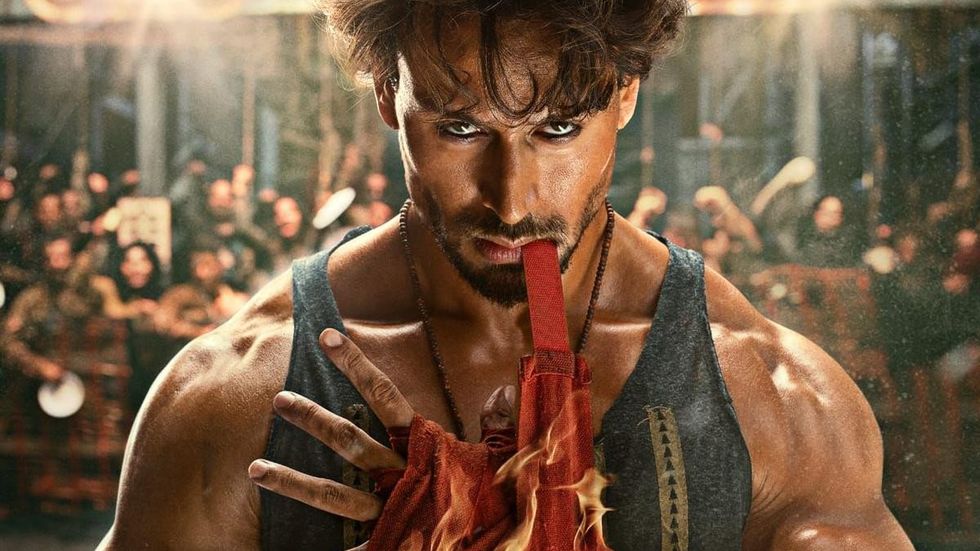IT MAY have had an eye-catching trailer loaded with special effects and a unique futuristic setting, but there was plenty of evidence that Ganapath would become a colossal disaster ahead of its release.
That is because lead star Tiger Shroff has a truly terrible track record of selecting screenplays that make any kind of sense or will be engaging to an audience. I had written about that very fact weeks before the newly released action entertainer was due to hit cinemas.
Sadly, all the apprehensions were justified because the actor has delivered yet another Bollywood film, where fight sequences and him showing off his gym honed body have more importance than the basic storyline and characterisation. That is why, like most of his other movies, it was completely panned by critics and audiences, who were silly enough to waste money on watching it. When all the calculations are done, it will likely be this year’s biggest box office disaster.

While Tiger ticks most Bollywood boxes, including acting, muscular physique, dancing ability, world class fighting skills and likeability, he wouldn’t know a good screenplay if it karate kicked him in the face. Right from the beginning of his career, he has been selecting nonsense storylines in action driven projects like the Baaghi trilogy, two Heropanti movies, Munna Michael, and A Flying Jatt. The one big success he has had was War, but that was largely due to headline star Hrithik Roshan.
All his films have him dancing brilliantly, showing off his six-pack and demonstrating dynamic fighting skills, but the remaining 90 per cent have been headache inducing plotlines filled with holes big enough to fly a rocket ship through. In most cases he has chosen to work with obviously dud directors, who have a worse story sense than him.
But the greatest Bollywood icons, across the generations have shown that in most cases a strong storyline and a good filmmaker will power you to great success. Showing off a gymhoned body and an ability to do a flying kick are not enough to sustain a career. It is a shame because unlike all the other younger actors under 35 currently working in Bollywood, Tiger actually has an all-round ability and likeability to be a big success. But films like his newly released action-drama aren’t doing him any favours. He has forthcoming films like the ridiculous looking Bade Miyan Chote Miyan, which will also have an inevitably dud storyline.
Tiger needs to watch movies that are working more deeply and learn about the importance of good writing. Perhaps he should get advice from more experienced people in the film industry or maybe look beyond Bollywood, including internationally, to work with filmmakers worthy of his talent. If he doesn’t change track soon, the heroic looking star will become a wasted talent who never reached his potential, due to poor choices. Don’t be surprised if you don’t see the planned sequel to Ganapath, because it’s another piece of rubbish that he can throw on the scrap heap. Hopefully he will finally use it as a learning experience to find better written stories.




